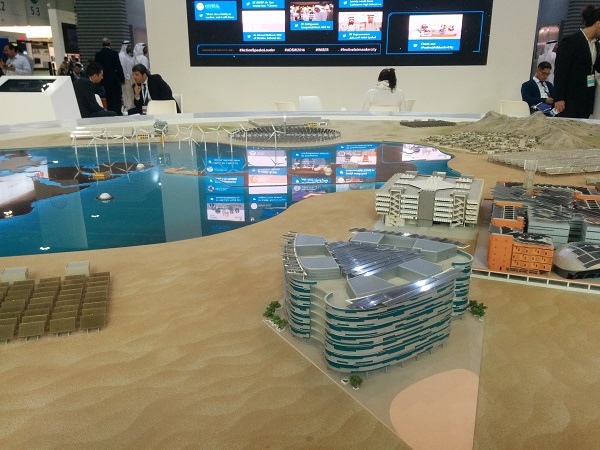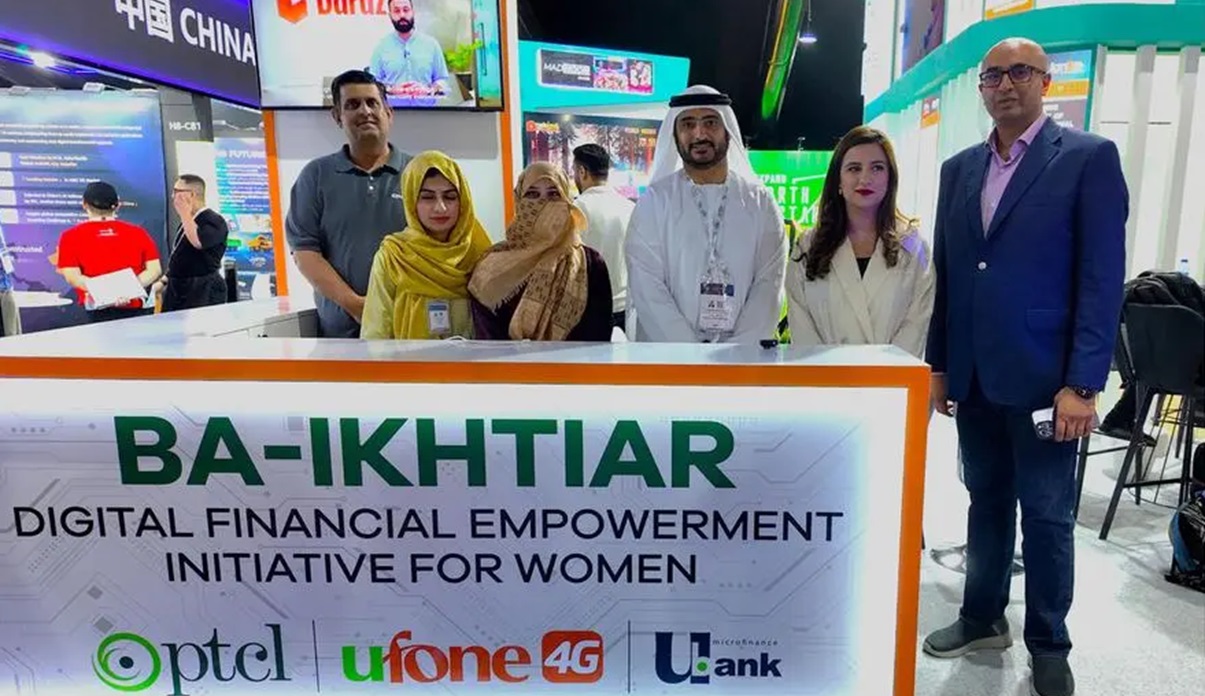Amid a slowing global economy, multinationals both green and not competed to show off their cleantech creds at the World Future Energy Summit (WFES) last week. Japanese nuclear corporations presented next to the world’s largest oil companies, but perhaps the most interesting businesses at the expo, aside from the celebrity presence of Akon, was the range of foreign startups seeking to expand into MENA, or catch the eye of investors.
Dirk van Gogswaardt, cofounder of Dutch lithium-ion battery company M2Power and representing solar panel partner Solar Techno, fielded considerable interest from distributors in Saudi Arabia, the UAE, Oman, Lebanon and Morocco for a patented off-grid, modular solar and energy storage unit.
“There’s a shift to renewable energy going on here [in the Middle East]. There is very good irradiation going on by the sun, so the conditions are favorable, and people are very open to new technology,” he said. French group Sunna Design, founded in 2010, built a reputation in Africa providing, again, off-grid solar units with batteries, this time for lighting and was using the forum to hasten a push into the Middle East.
“There are definitely more opportunities here for our company than Europe,” said Middle East business development manager Martin Saunier-Plumaz, despite quickly growing competition within the region in the off-grid solar sector. He said the nickel-metal hydride (NiMH) batteries that supported the panels could withstand temperatures of up to 85 degrees Celsius and were already being used in the Maghreb, continental Africa, Jordan, Saudi Arabia, the UAE and Oman.
Attendees were also alerted to the possibilities of solar-plus-battery products in July last year, when CleanTech Arabia founder Ahmed Huzayyin said he was urging solar energy entrepreneurs to add battery storage options to their products. A few, such as SolarizEgypt, are indeed competing on this front, but integrated solar battery systems are still a rare beast in this region. Three other exciting ideas from startups were from New Zealand, Germany and France again.
French startup BladeTips had possibly the most convincing renewable energy innovation however, with a new design for wind turbines. Cofounder Thibault Cherqui said that most energy was generated by the tips of windwill blades. Their design then included only the tips of blades, held together by cables and ‘floated’ into the sky by small attached helicopter-like drones.
The ‘water-energy nexus’ concept was a hot topic, as both GE and the International Renewable Energy Agency (IRENA) released reports identifying key issues in the way industries and governments use and abuse water and energy resources. The GE report included a case study on desalination in the Middle East and North Africa, as countries use oil and gas to power energy intensive desal plants to counter a worrying decline in freshwater reservoirs.
“In the United Arab Emirates, for example, desalination accounts for nearly 25 percent of total primary energy consumption. Likewise Saudi Arabia uses 25 percent of its oil and gas production to generate electricity for desalination plants,” the report said. It identified several technical and cultural solutions to using hydrocarbons for desal plants.
The IRENA report included food in its 124 page ‘nexus’ report, looking at how renewable energy could be used to achieve food and energy production and water conservation goals. For Jordan, a state with severe water problems and a shortage of natural energy resources, this concept is particularly pertinent. During the summit Abu Dhabi research institute Masdar announced an agreement Jordan’s Ministry of Energy and Mineral Resource to build a 200MW solar PV plant. It will be Masdar’s second renewable project in the country, following the 117MW wind farm in Tafila which opened in December.





